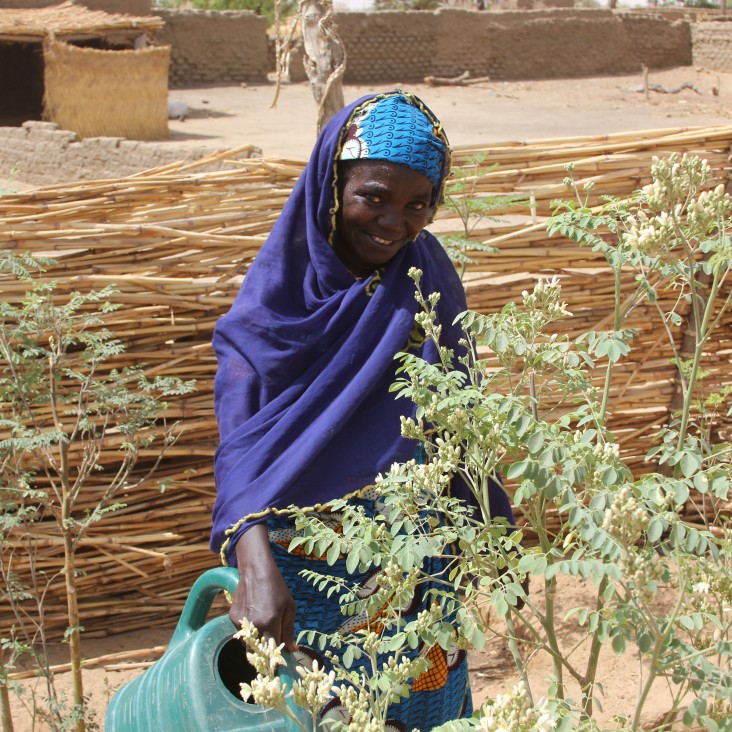Speeches Shim

Agriculture and Food Security
The vast majority of Nigeriens rely on subsistence agriculture to meet their daily needs. The region’s increasingly frequent climatic shocks, such as droughts and floods, lead to poor harvests and regular food shortages. Even during plentiful times, 50 percent of children under-5 years old are chronically undernourished. USAID provides food and other assistance to the most vulnerable communities, including pregnant and nursing mothers and young children, while working to address the root causes of malnutrition and promote positive health practices. Our programs improve agricultural, livestock and resource management practices and ensure inclusive economic growth for all.
Democracy, Human Rights and Governance
Since Niger’s return to democratic rule in 2011, the Government has taken steps to fight corruption and improve governance. We help Nigerien legislators develop laws to support the effective management of the country’s natural resources and to protect human rights. We also encourage cooperation among the legislature, civil society, and local governments to increase citizen participation in governance, particularly in areas vulnerable to violent extremism.
Global Health
Our interventions improve the health and nutrition status of the most vulnerable by reducing malnutrition, increasing access to and use of quality family planning services and improving fistula prevention and treatment. We also support mass drug administration to eliminate or control neglected tropical diseases, and strengthen the HIV/AIDS medical supply system. We also promote the adoption of positive health practices in communities.
Education
With an illiteracy rate of 70 percent and only 44 percent of female primary school students reaching the sixth grade, Niger has recently adopted an ambitious national education program to increase educational access, quality, and retention. Our programs improve early grade reading and adult literacy, the school environment, especially for girls, increase parental engagement, and strengthen community ties to education.
Working in Crises and Conflict
Security threats from internal and external extremist groups continue to be a major focus of the Trans-Saharan Counter-Terrorism Partnership that we implement throughout the Sahel. We help the government and local partners create economic opportunities, as well as increase civic and political participation for youth. This helps undermine extremist messages and encourage stability in Niger and the region.
Humanitarian Assistance
We provide emergency humanitarian assistance, support agricultural, livelihood, food security, health and nutrition interventions. They are designed to deliver life-saving assistance and support populations’ recovery from food insecurity while reinforcing the country's capacity to cope with future emergencies. An estimated 3.4 million Nigeriens are food-insecure and approximately 1.3 million children under five years of age suffer from acute malnutrition.


Comment
Make a general inquiry or suggest an improvement.